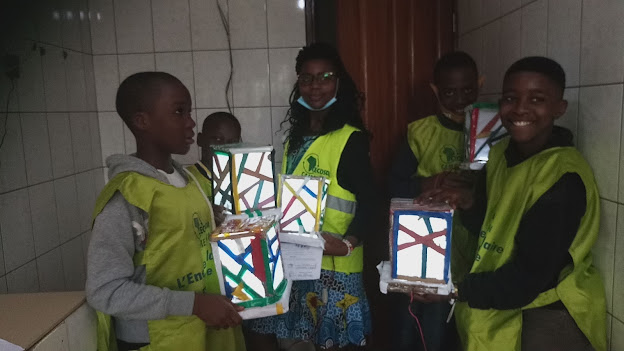Workshop on the Manufacture of an Electric Night Lamp with Recycled Material at CECOSDA Cameroon
Background: CECOSDA Cameroon, partnering with the Ministry of Environment, Nature Protection and Sustainability is taking active part in the promotion of an eco-friendly environment by training youth in green entrepreneurship which deals with the protection of human health and the environment through waste management.
PROMOTING GREEN ENTREPRENEURSHIP IN
CAMEROON: CECOSDA trains youths on Waste Management
I. Theoretical Phase of the Workshop
Days two (02) and three (03) of the workshop were the days where the actual mounting of the night lamps were carried out by using a household waste material for a more beneficiary purpose.
a) Household or Domestic Waste Management: Collection and Recycling
The waste recycled in this workshop was cardboard; which was reused with the aim of giving it an economic value and helping in reducing solid pollution as well.
b) Low-Cost Electrification
| Testing Electrical Connection |
| Presentation of night lamps made with recycled paper |
III. Conclusion and Perspectives
Our next objective here at
CECOSDA will be to use a renewable energy source; such as solar energy by the
use of solar panels, to power these homemade night lamps and continue in the
promotion of an eco-friendly environment.
Article written by Rita ENOH
Renewable Energy Expert
Programme assistant in charge workshops - CECOSDA





Commentaires
Enregistrer un commentaire
Your are welcome, Please leave a comment for the moderator